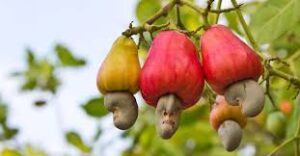Nigeria’s Q1 2023 Agricultural Exports: A Deep Dive into Top 10 Revenue Generators.

Introduction: In the first quarter of 2023, Nigeria witnessed a substantial surge in agricultural exports, with the top 10 commodities raking in an impressive N279.64 billion in revenue, according to the latest data from the National Bureau of Statistics (NBS). This represents a significant year-on-year increase of 38.7%, showcasing the country’s growing influence in the global agricultural market.
1. Cocoa Beans: Cocoa beans emerged as the leading agricultural export, contributing N102.71 billion, equivalent to 36.73% of total agricultural exports. Nigeria, ranked as the fourth-largest global cocoa grower, primarily exported this commodity to countries such as the Netherlands, Malaysia, Indonesia, Belgium, Germany, and Italy.
2. Sesame Seeds: With an export value of N67.66 billion, sesame seeds secured the second spot, constituting 24.20% of Nigeria’s total agricultural exports in Q1 2023. China emerged as the primary importer, while Japan, Vietnam, Turkey, and South Korea also contributed to this significant export.
3. Soybeans: Nigeria’s soybean exports, valued at N38.63 billion, accounted for 13.8% of total agricultural exports. Driven by increasing production and high demand, the country exported soybeans to India, Canada, Turkey, Nepal, and Pakistan, showcasing its potential for sustained growth.
4. Cashew Nuts: With a notable presence in the cashew industry, Nigeria exported cashew nuts, both in shells and shelled, amounting to N34.02 billion, representing 12.17% of total agricultural exports. The country’s annual production growth and rising market share emphasize its growing influence in global cashew production.
5. Other Cut Flowers & Flower Buds: Generating N13.0 billion in revenue, other cut flowers and flower buds accounted for 4.65% of total agricultural exports, highlighting their ornamental appeal and market demand.
6. Ginger: Nigeria’s ginger exports, valued at N7.48 billion, constituted 2.67% of total agricultural exports. The country holds a significant share, accounting for 40% of global ginger production, according to statistics from the Food and Agriculture Organisation.
7. Frozen Shrimps and Prawns: Frozen shrimps and prawns contributed N5.13 billion, making up 1.8% of total agricultural exports. These versatile seafood products find applications in salads, pasta, and various culinary delights.
8. Cocoa Butter: Nigeria exported natural cocoa butter, amounting to N4.88 billion, contributing 1.75% to total agricultural exports. The Nigerian Export Promotion Council (NEPC) sees promising markets in the Netherlands, France, Canada, Turkey, and Poland.
9. Other Oil Seeds and Oleaginous Fruits: Accounting for N1.19 billion in revenue, other oil seeds and oleaginous fruits constituted 0.43% of total agricultural exports, showcasing the diverse range of commodities contributing to Nigeria’s export revenue.
10. Roasted Cocoa Beans: Roasted cocoa beans, earning Nigeria N1.01 billion, rounded off the top 10 list, indicating the country’s prowess in value-added cocoa products.
Conclusion: Nigeria’s thriving agricultural exports in Q1 2023 underscore the nation’s diverse portfolio and growing influence in global markets. With a strategic focus on key commodities, the country continues to position itself as a major player in the international agricultural landscape.

